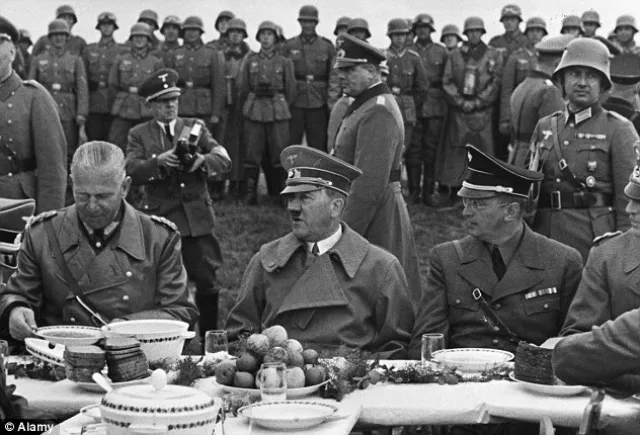HTT_13_6-5-14.mp3
(13.65 MB)
June 5, 2014
Ray Goodwin and Carolyn Yeager read and comment on the Nov. 2nd-6th 1941 dinner table monologues by the German Leader, as taken down in shorthand by trusted aide, attorney Heinrich Heim. Topics included in this episode:
- The dimensions of Europe have changed over the years;
- Criminals cannot be tolerated in society during wartime but juvenile criminals need special treatment;
- Diet and long life, and freedom from disease;
- Progress of the Germanic race and peculiarities of the Jewish mind;
- Standards for promotion, and fairness in handing out awards
The edition of Hitler's Table Talk being used was translated by Norman Cameron and R.H. Stevens, published by Enigma Books, New York, and can be found as a pdf here.
- 7424 views






The earlier German typeface
Burt
The earlier German typeface script is apparently called Fraktur. For me the difficult aspect arises when the typeface is poor. At that point I sometimes must double-check "f" vs "s", and "ss" (or eszett) vs "tz". I consider the script rather beautiful, although of course they did not hand-write that way. There were similar typefaces in use at different times, according to Wikipedia, but every old German book I have ever bought seems consistent with Fraktur.
On Gothic-style typesetting
carolyn
"of course they did not hand-write that way."
Some people did. Willi Kriessmann wrote up the entire alphabet for me in that style. His whole family knew how to write that way, he said, but not that they usually did. It's so time-consuming because it's really printing. Maybe they learned in school in Austria?
He gave me another book in that script that had belonged to his sister - of N-S poetry. It's more fitting for poetry. Sure, it's attractive to look at, but for reading long texts? It's from a different time, kind of quaint.
Yes, it is called Fraktur.
http://en.m.wikipedia.org
Markus
http://en.m.wikipedia.org/wiki/Crimean_Goths
German language
Markus
Hitler proposed that German will be spoken to communicate among Europeans. This was already the case in the Central European countries of the Austrian-Hungarian Empire from the Czechs to Bulgaria and the Balkans. Most Scandinavians, Poles, Baltics and almost all Dutch and Flemish spoke German. A number of British spoke German. French and Italians in border regions spoke German as a second language and there were already German language islands in Ukraine and Russia. Even today, German is the language used by the largest group of all EU people. Only after 1945, English and Russian replaced German as lingua franca in Europe.